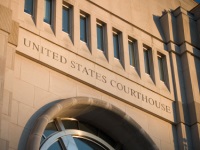This week, the Supreme Court heard argument regarding whether the SEC’s actions to disgorge ill-gotten gains are subject to a five-year statute of limitations for “any civil fine, penalty, or forfeiture.”
The appeal stems from an SEC action alleging that between 1995 and 2006, Charles Kokesh, a New Mexico-based investment adviser, misappropriated a staggering $35 million from two investment advisory companies that he owned and controlled, squandering the money of tens of thousands of small investors. While Kokesh moved into a gated mansion and bought himself a personal polo court (complete with a stable of 50 horses), he allegedly concealed his massive ill-gotten earnings by distributing false proxy statements to investors and filing dozens of false reports with the Securities and Exchange Commission.
In 2009, the SEC brought a civil enforcement action against Kokesh in the District of New Mexico alleging violations of the Securities Exchange Act of 1934, the Investment Advisers Act of 1940, and the Investment Company Act of 1940. The jury found violations of all three acts, and the district court ordered Kokesh to disgorge the $35 million he misappropriated (plus interest) and pay a $2.4 million civil monetary penalty for the “egregious” frauds he committed within the prior five years. While the district court ordered disgorgement of all of Kokesh’s ill-gotten gains since 1995, the civil monetary penalty it imposed was constrained by the five-year statute of limitations found in 28 U.S.C. § 2462, which applies to claims throughout the U.S. Code for “any civil fine, penalty, or forfeiture.” READ MORE






